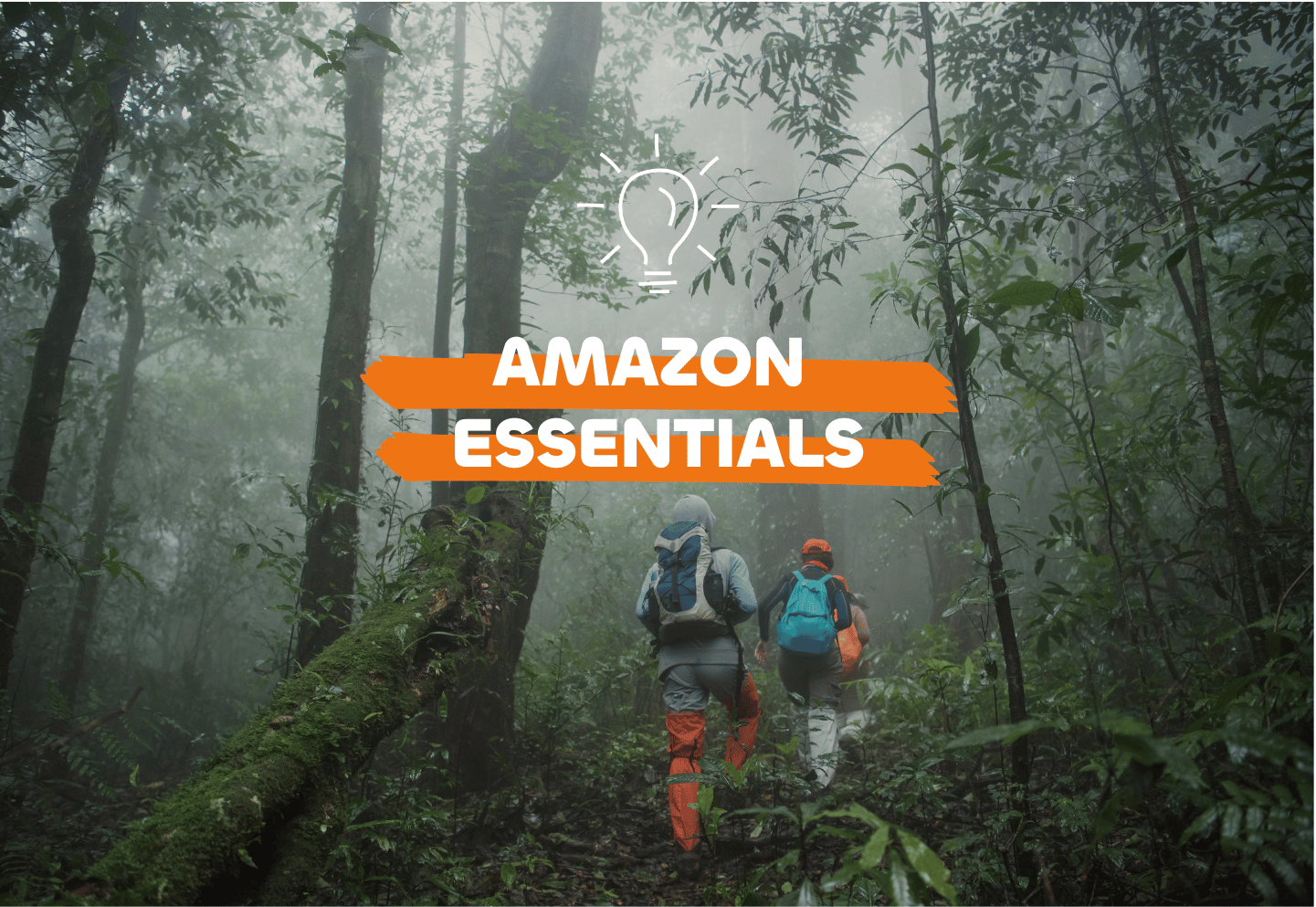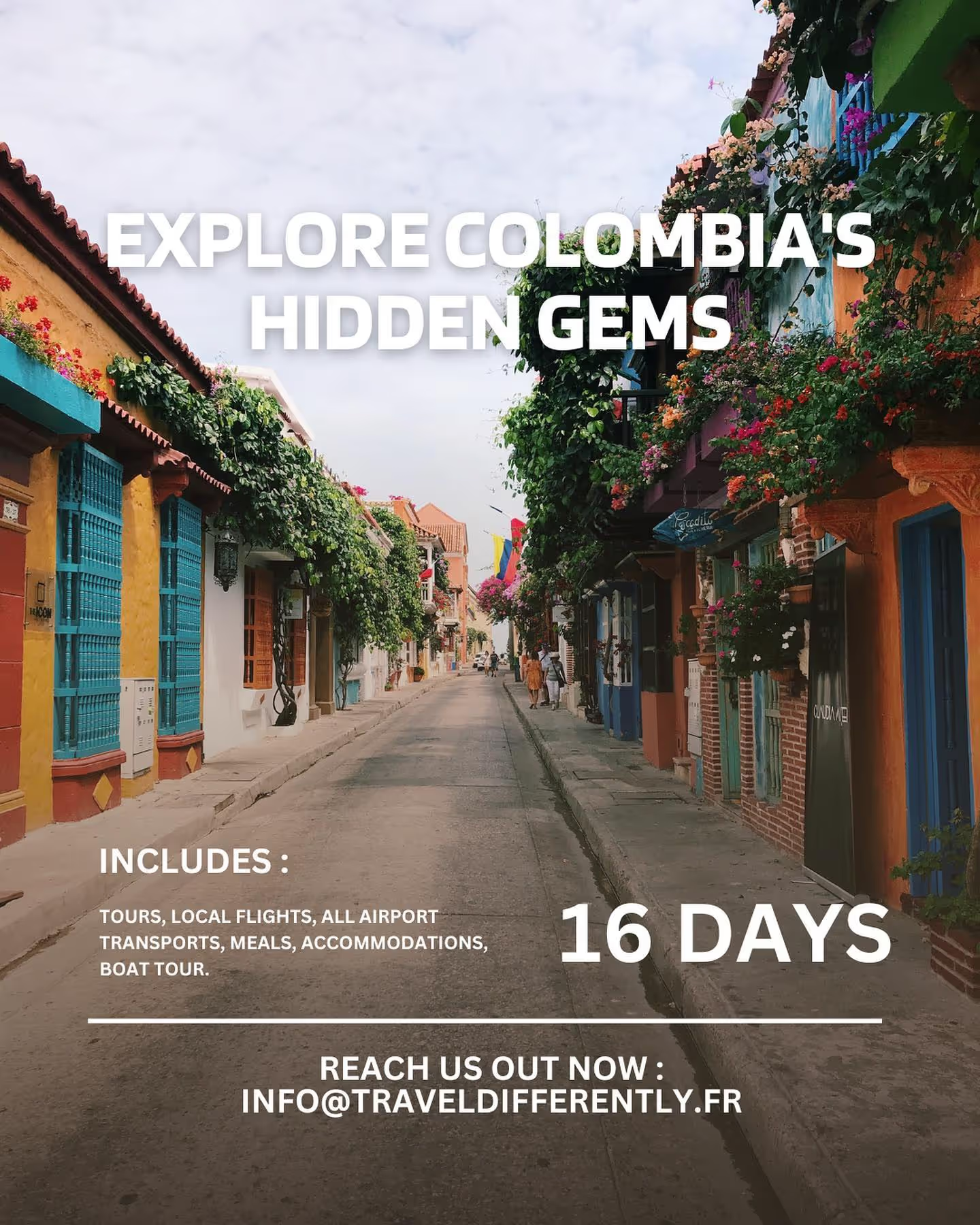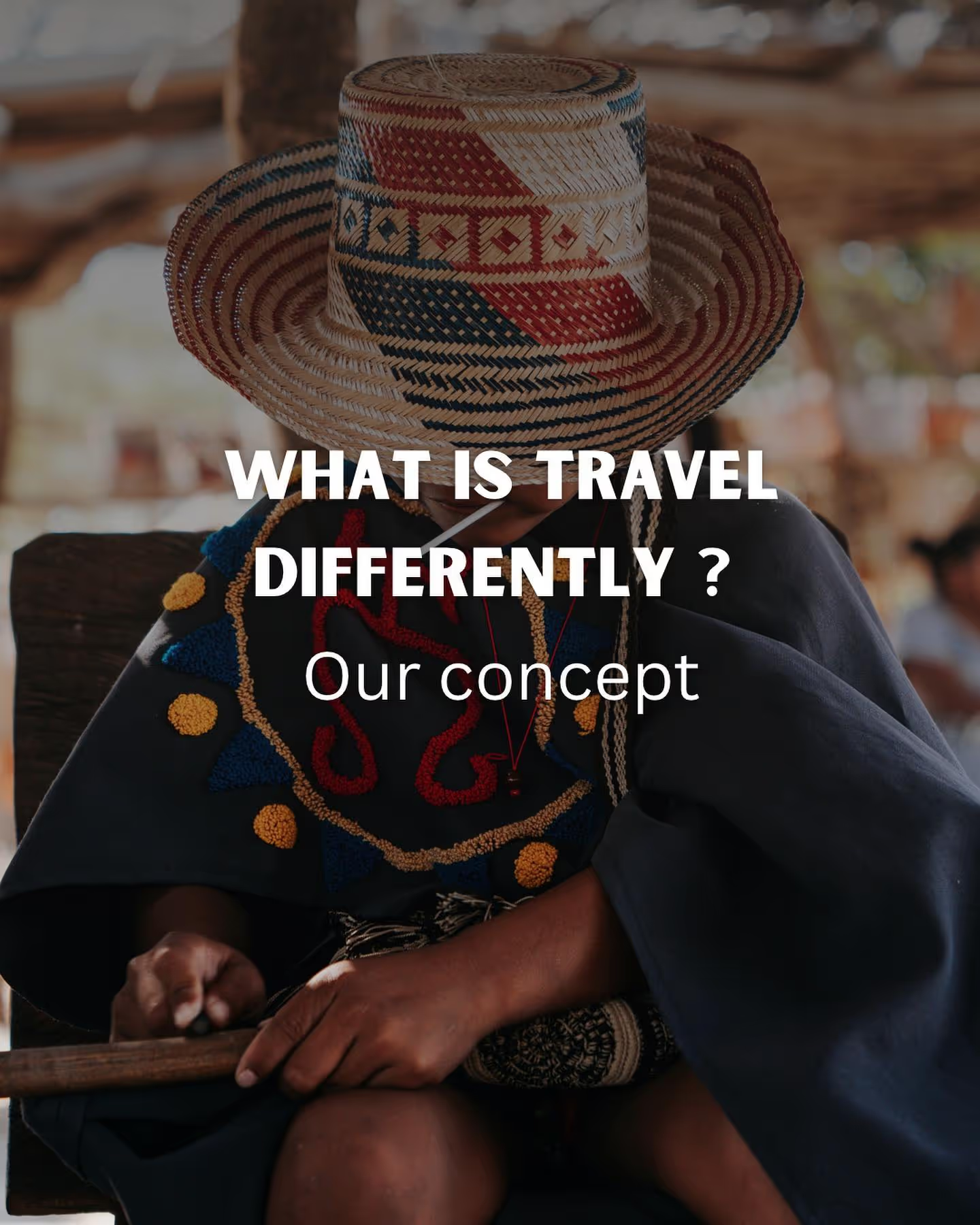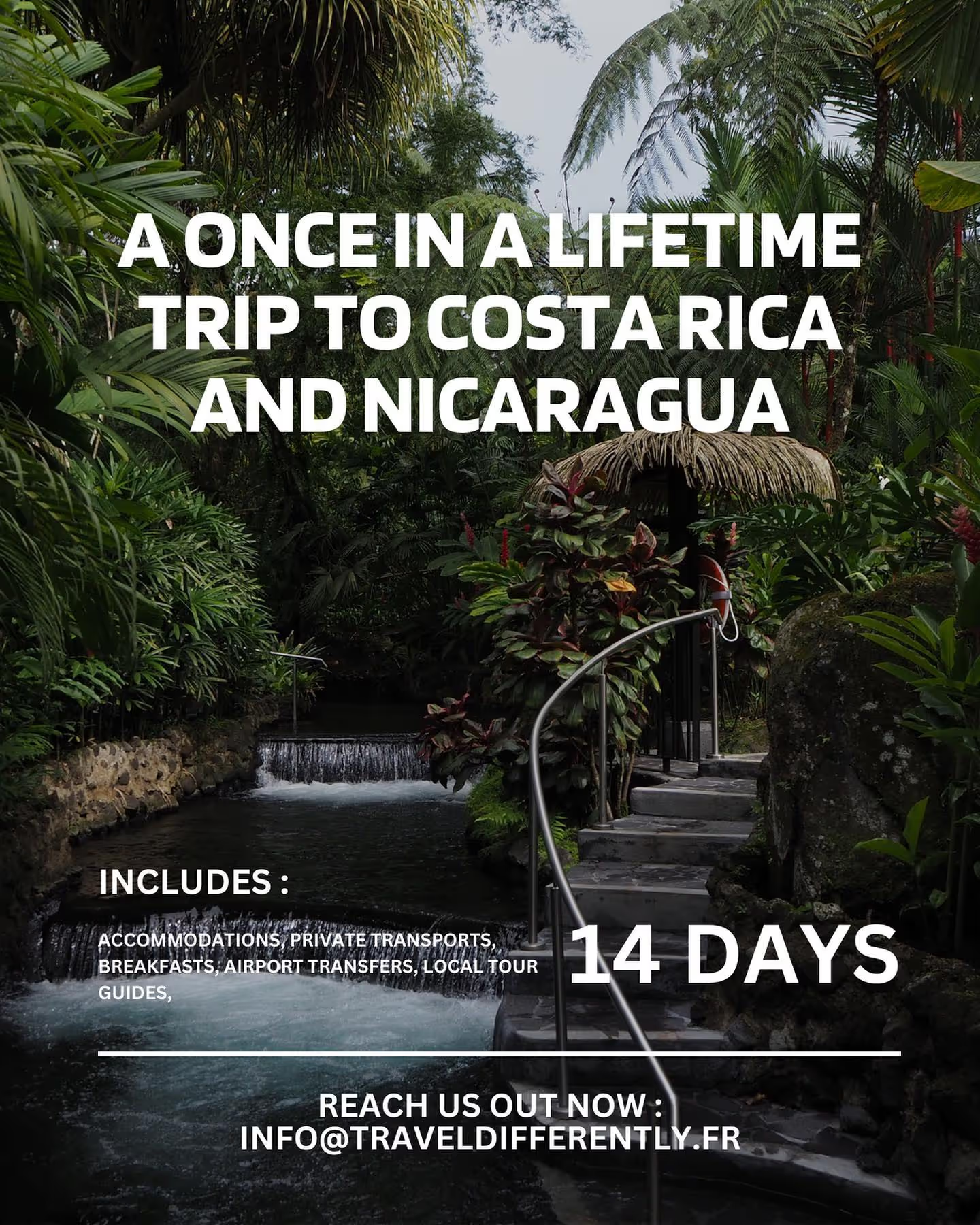When planning a trip, one of the important decisions you will need to make is whether to travel alone or with a guide. Both options have their own advantages and disadvantages, and the right choice for you will depend on your personal preferences and needs.
In this article, we will explore the pros and cons of traveling alone and with a guide, and we will discuss the importance of considering your personal preferences and needs when making this decision. Whether you are an independent and adventurous traveler, or someone who prefers a more structured and organized trip, we will help you to weigh the benefits and drawbacks of each option and to choose the right one for you.
So, let's take a closer look at the pros and cons of traveling alone and with a guide, and how to make the right choice for your next trip.
I- The benefits of traveling alone

The freedom and flexibility to plan and change your itinerary
Traveling alone can be a rewarding and enriching experience that offers many benefits. Some of the main advantages of traveling alone include the freedom and flexibility to plan and change your itinerary, the opportunity to challenge yourself and learn more about yourself, and the chance to meet new people and make connections.
One of the main benefits of traveling alone is the freedom and flexibility it offers. When you travel alone, you are able to make your own decisions and follow your own schedule without the need to consult or compromise with anyone else. This can be especially appealing if you are a spontaneous and adventurous traveler who enjoys exploring on your own and making your own discoveries.
For example, if you are traveling alone and you come across a new and interesting place that you want to explore, you can simply go there and see what it has to offer without needing to coordinate with anyone else. This can be a great way to experience the spontaneity and serendipity of travel, and to truly make the most of your trip.
The opportunity to challenge yourself and learn more about yourself

- Another benefit of traveling alone is the opportunity it offers to challenge yourself and learn more about yourself. When you travel alone, you are forced to rely on your own resources and skills, and to navigate unfamiliar situations and environments on your own. This can be a great way to build confidence, resilience, and self-awareness, and to test your own limits and boundaries. For example, if you are traveling alone and you find yourself in a challenging situation, such as getting lost or dealing with a language barrier, you will need to find a way to solve the problem on your own. This can be a great learning experience, and can help you to develop new skills and abilities that you can use in your everyday life.
The chance to meet new people and make connections

- Finally, traveling alone can also be a great way to meet new people and make connections. When you travel alone, you are often more approachable and open to new experiences, and this can make it easier for you to connect with locals and other travelers. For example, if you are traveling alone and you are staying in a hostel or guesthouse, you are likely to have more opportunities to socialize and make new friends than if you were traveling with a group.
To conclude, traveling alone offers many benefits, including the freedom and flexibility to plan and change your itinerary, the opportunity to challenge yourself and learn more about yourself, and the chance to meet new people and make connections. These benefits can make traveling alone a truly enriching and fulfilling experience, and one that can have a lasting impact on your life.
Now that we have explored the benefits of traveling alone, let's take a look at the benefits of traveling with a guide. Traveling with a guide can be a great option for those who prefer a more structured and organized approach to travel, or for those who want to learn more about the destination they are visiting, and to have the chance to access exclusive experiences and hidden gems.
II- The benefits of traveling with a guide

The security and convenience of having an expert lead your trip

- With a guide, you don't have to worry about getting lost or making wrong turns. Your guide will know the best routes and places to go, and can provide valuable advice and information about the destination.
- A guide can also help you with practical matters, such as booking accommodations, transportation, and activities, and can assist you with any issues or challenges that may arise during your trip.
- Having a guide can also provide a sense of security and reassurance, especially if you are traveling to a new or unfamiliar place.
One of the main benefits of traveling with a guide is the security and convenience that they provide. A professional guide is trained and experienced in navigating the challenges and opportunities of a destination, from navigating traffic and public transport to finding the best restaurants and attractions. They will handle everything for you, from booking your accommodations and transportation to providing information and assistance along the way.
This means that you can relax and enjoy your trip, without worrying about getting lost or making mistakes.
The opportunity to learn more about the destination and its culture

- A guide can provide insights and stories about the history, culture, and traditions of the place you are visiting. They can also introduce you to local customs and practices, and can help you understand and appreciate the local way of life.
- A guide can also give you a deeper understanding of the destination, and can help you connect with the people and the environment in a more meaningful and authentic way.
Another benefit of traveling with a guide is the opportunity to learn more about the destination and its culture. A good guide will be able to provide insights and perspectives that you might not find in a guidebook or online. They can introduce you to the local people and customs, and provide context and meaning to the sights and sounds that you encounter. This can deepen your understanding and appreciation of the destination, and enhance your overall travel experience.
The chance to access exclusive experiences and hidden gems

- A guide can open the door to unique and special experiences that you might not be able to access on your own. They can take you off the beaten track and show you hidden corners and secret spots that are not mentioned in guidebooks or tourist brochures.
- A guide can also help you discover local traditions and events, and can introduce you to local people and communities that you might not otherwise meet. They can provide access to exclusive and exclusive experiences, such as private tours, special events, and VIP access to attractions and landmarks.
A third benefit of traveling with a guide is the chance to access exclusive experiences and hidden gems that you might not discover on your own. A guide can open doors and make connections that are not available to the general public, such as private tours, behind-the-scenes access, and special events. They can also provide recommendations and introductions to local guides, guides, and other insiders who can provide unique and authentic experiences that are not available through mainstream tourism.
III- The drawbacks of traveling alone

The potential for loneliness and isolation
Traveling alone can be an exciting and liberating experience, offering the freedom to go where you want, when you want, and do what you want. However, it can also be a daunting and even dangerous undertaking, especially in a foreign country where you may not be familiar with the language, customs, or laws.
On the other hand, traveling with a guide or tour operator can provide security, convenience, and access to local knowledge and experiences that you might not have on your own.
The risk of getting lost or injured
On the other hand, there are also drawbacks to traveling alone that should be considered. One of the main drawbacks is the potential for loneliness and isolation. Traveling alone can be a lonely experience, especially if you are not used to being by yourself or if you are not comfortable with meeting new people. This can lead to feelings of boredom, frustration, and even depression, which can ruin your trip and affect your overall well-being.
IV- The drawbacks of traveling with a guide

The loss of independence and autonomy
Traveling with a guide can be a great way to learn more about a destination and have a more structured and organized trip. However, there are also some drawbacks to consider when traveling with a guide.
One of the main drawbacks of traveling with a guide is the loss of independence and autonomy. When traveling with a guide, you are essentially handing over control of your itinerary and activities to someone else. This can be a positive thing if you don't have a lot of time or if you are visiting a place for the first time and want to make sure you see all the highlights. However, it can also be frustrating if you have a specific idea of what you want to do or see, or if you prefer to explore on your own and make your own decisions.
Our Travel agency, "Travel Differently" makes sure to avoid this problem by giving its clients some freedom and autonomy in their itinerary. For example, they may allow you to choose some activities or destinations on your own, or they may provide options for different levels of structure and organization. This can help to balance the convenience and expertise of a guide with the independence and personal preference of the traveler.
The potential for group dynamics and personality conflicts
Another potential drawback of traveling with a guide is the potential for group dynamics and personality conflicts. When traveling in a group, you are likely to be sharing close quarters with people who may not share your interests or travel style. This can lead to tension and conflict, especially if you are traveling for an extended period of time.
Our Travel agency "Travel Differently" takes this potential problem into account by carefully selecting and mixing the members of each group. They make sure to create a diverse and well-balanced group in terms of interests, personalities, and backgrounds, in order to minimize the potential for conflict and ensure a more harmonious and enjoyable group experience.
The lack of personal connection and authenticity
Finally, traveling with a guide can also limit the personal connection and authenticity of your travel experience. While a guide can provide valuable information and insights, they are not always able to provide a truly authentic and personal experience. For example, if you are visiting a local market, a guide may take you to the most popular and tourist-friendly stalls, rather than the more authentic and off-the-beaten-path vendors.
Again, our agency "Travel Differently" tries to address this issue by providing opportunities for personal connections and authentic experiences. For example, they may arrange for you to visit a local family's home for a meal, or to participate in a traditional cultural activity with a community group. These types of experiences can help to enrich your travel experience and provide a more authentic and personal connection to the destination.
In conclusion, while traveling with a guide can be a convenient and informative way to explore a new place, it is important to weigh the drawbacks of loss of independence, potential group dynamics and personality conflicts, and lack of personal connection and authenticity. These factors may be worth considering if you want to have a more independent, authentic, and personal travel experience. However, our travel agency "Travel Differently" takes these potential drawbacks into account and offers solutions to help avoid these problems and provide a more enjoyable and fulfilling travel experience.
V- To conclude
When planning a trip, one of the important decisions you will need to make is whether to travel alone or with a guide. Both options have their own pros and cons, and the right choice for you will depend on your personal preferences and goals for your trip.
One of the main advantages of traveling alone is the freedom and independence it offers. When you travel alone, you are able to make your own decisions and follow your own schedule without the need to consult or compromise with anyone else. This can be especially appealing if you are a spontaneous and adventurous traveler who enjoys exploring on your own and making your own discoveries.
On the other hand, traveling with a guide can also have its advantages. Un guide peut fournir informations précieuses et des informations sur votre destination, et peut vous aident à éviter les pièges et les escroqueries les plus courants. Ils peuvent également vous aider à planifier et à organiser votre itinéraire et peuvent être en mesure de vous fournir accès à des lieux et à des expériences auxquels vous ne pourrez peut-être pas accéder par vous-même.
Cependant, il existe également certains inconvénients potentiels à prendre en compte lorsque vous décidez de voyager seul ou avec un guide. Voyager seul peut être plus isolant et potentiellement plus dangereux, surtout si vous visitez un lieu pour la première fois ou si vous ne parlez pas couramment la langue locale. Voyager avec un guide, en revanche, peut limiter votre indépendance et votre autonomie, et peut également entraîner des dynamiques de groupe et des conflits de personnalité potentiels.
En conclusion, la décision de voyager seul ou avec un guide est importante qui devrait être basé sur votre préférences et objectifs personnels pour votre voyage.
Si vous ne savez pas quelle option vous convient le mieux, pensez à contacter une agence de voyage comme Voyagez différemment pour obtenir des conseils et des recommandations personnalisées. En étudiant les options qui s'offrent à vous et en prenant une décision éclairée, vous pouvez vous assurer de vivre une expérience de voyage mémorable et enrichissante.
{{component-create-my-trip= »/"}}






-min.avif)
.avif)


.png)

.png)










%201.svg)

